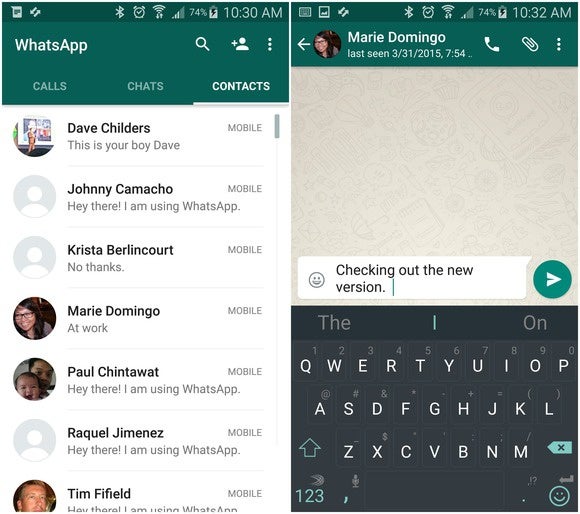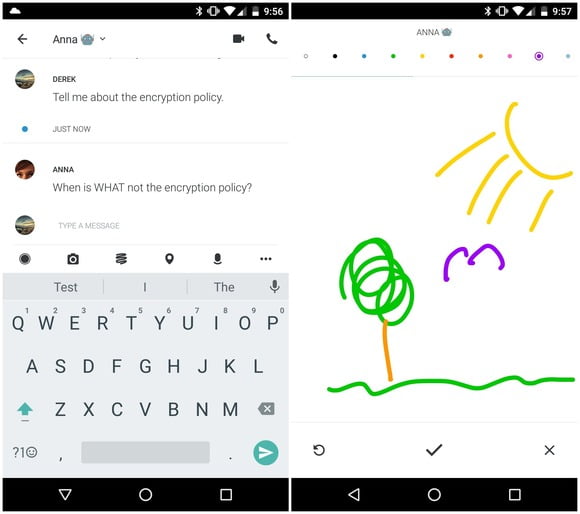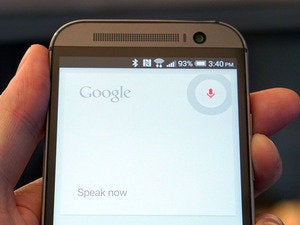There is a growing consciousness about the desire to keep one’s messages private. Some are concerned about hackers, or worry about the government spying on them, but most people just agree with the general principle that what you say in your chat conversations ought to stay between you and the people you chat with.
It’s not a pleasant idea to think that your messages could be archived for perpetuity on a large company’s server or analyzed by some algorithm. The quest for privacy has birthed a whole generation of apps that promise to give you exactly that. Services like Telegram and Signal have turned the phrase “end-to-end encryption” into a popular discussion. We’re here to help you figure out what this is all about and which apps to try.
Contents
A little background on encryption
Before we look at some specific apps, here’s a very brief explainer. Essentially,end-to-end encryption means that only the sender and the recipient can read the message. The message is encrypted on your phone, send to the recipient, and then decrypted. This prevents prying eyes from the telecom providers, government agencies, and even the company that hosts the service itself from being able to read your messages. This means they wouldn’t have the ability to hand over messages even if they were subpoenaed to by a government agency. And if a hacker broke into the messaging service’s servers, they couldn’t get at your conversations.
The desire for end-to-end (E2E) encryption isn’t just about those who don’t want the NSA to spy on them. In practice, it’s just about a basic sense that messages should be private. With that in mind, you have to be aware that just because something has the word “encrypted” doesn’t mean it is end-to-end encrypted. Some services will encrypt the message between the endpoints of transmission; your conversations are stored encrypted on the messaging service’s servers, but since they encrypted them, they can decrypt them.
The services we’re looking at here all feature end-to-end encryption.
There is a growing consciousness about the desire to keep one’s messages private. Some are concerned about hackers, or worry about the government spying on them, but most people just agree with the general principle that what you say in your chat conversations ought to stay between you and the people you chat with.
It’s not a pleasant idea to think that your messages could be archived for perpetuity on a large company’s server or analyzed by some algorithm. The quest for privacy has birthed a whole generation of apps that promise to give you exactly that. Services like Telegram and Signal have turned the phrase “end-to-end encryption” into a popular discussion. We’re here to help you figure out what this is all about and which apps to try.
A little background on encryption
Before we look at some specific apps, here’s a very brief explainer. Essentially,end-to-end encryption means that only the sender and the recipient can read the message. The message is encrypted on your phone, send to the recipient, and then decrypted. This prevents prying eyes from the telecom providers, government agencies, and even the company that hosts the service itself from being able to read your messages. This means they wouldn’t have the ability to hand over messages even if they were subpoenaed to by a government agency. And if a hacker broke into the messaging service’s servers, they couldn’t get at your conversations.
The desire for end-to-end (E2E) encryption isn’t just about those who don’t want the NSA to spy on them. In practice, it’s just about a basic sense that messages should be private. With that in mind, you have to be aware that just because something has the word “encrypted” doesn’t mean it is end-to-end encrypted. Some services will encrypt the message between the endpoints of transmission; your conversations are stored encrypted on the messaging service’s servers, but since they encrypted them, they can decrypt them.
The services we’re looking at here all feature end-to-end encryption.
Wire
Another good option is Wire. It offers some fun messaging tricks, like the ability to doodle, share your location, send images, or record a video. The app also includes a chat bot, Anna, which offers somewhat useful answers to various questions about how to use the app.

Your account is tied to your phone number, which makes setup and account deletion easy. Wire is great for one-on-one chats if you would prefer conversations with someone be off the record. But it doesn’t have the same type of social or group features found with some of the other offerings here.
You also can’t forget about the uber-popular WhatsApp. Like the others on this list, it promises end-to-end encryption so your messages stay private. The biggest advantage is that the service, which is owned by Facebook, has over a billion users. There’s a very good chance you won’t have to convince all your friends and family to download the app.

That shouldn’t be discounted, as one of the pains of moving to a messaging service is convincing everybody to jump aboard. However, WhatsApp is now owned by Facebook, a connection that could make some wary, especially since the social network recently announced it’d be using some account information, including phone numbers, from WhatsApp. If your goal is a high threshold of privacy, then it’s worth keeping an eye on.
Dust
If you want to see messages disappear before your eyes, then Dust (formerly Cyber Dust) is the way to go. The brainchild of Dallas Mavericks owner Mark Cuban, the messages can disappear in 24 hours or as soon as they’re read, based on your preferences.

The company spells out its encryption policy, and includes a couple other features to ease your mind like chats that don’t show usernames, so even if someone took a screenshot it couldn’t necessarily be attributed to you.
The best app for you is going to depend upon your needs. Secure messaging is a huge and growing area of consumer interest, but it’s worth the effort if staying secure is what you’re after.
source”cnbc”







